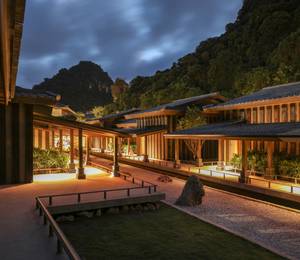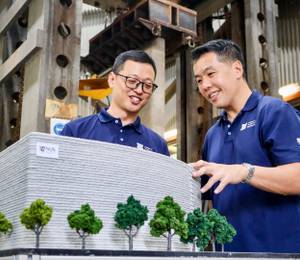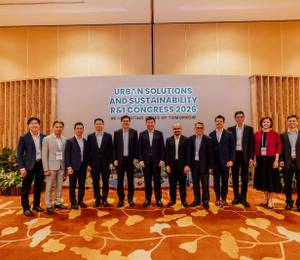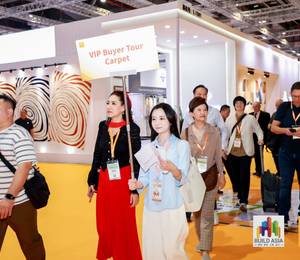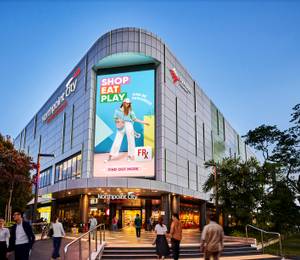Amsterdam, The Netherlands – The municipality of Middelkerke in Belgium will soon be enriched with an iconic casino. The new casino will not be housed in a dedicated building, but will be integrated in the landscape in a way that rewrites the historic relationship of the coastal town with the sea. This is revealed in the ambitious preliminary design of the Nautilus consortium, who were selected by the council as winners of the Design & Build competition for the casino located at the well-known Epernay square.
Together with a team of urban planning experts, the municipality of Middelkerke studied the four selected proposals for the casino building in detail over the past few months. After a thorough evaluation, the council selected the Nautilus consortium as the winner, a collaboration between developer Ciril, chief designers ZJA (architecture) and DELVA (landscape architecture), OZ (casino and hotel design), executive architect Bureau Bouwtechniek and contractors Furnibo and Democo. They are assisted by experts from COBE, VK Engineering, Beersnielsen, Witteveen+Bos, Plantec, MINT and Sertius.
The construction of the new casino building was conceived by the designers as an opportunity to also work on flood risk management (dike reinforcement), public space quality, making the seawall car-free and connecting the Epernay square to the sea. The uniqueness of this design is that the building typology of a casino - often a closed box - is turned inside out and integrated into a multifaceted project situated in a public dune landscape. It transforms the seawall into a unique destination for encounter, play, culture and entertainment along the Belgian Coast.
Inspiration for the design was found in the story of the town’s origin. Middelkerke originated on the island of Testerep and was able to grow into an abundant fishing village through the natural protection of a dune and a direct connection to the North Sea via a natural canal. The dunes and water channels of Middelkerke disappeared as a result of urbanization over the last century. The construction of the casino building in Middelkerke will function as a tool to renew this historic coastal landscape and give it a contemporary meaning.
Sustainability is of primary concern in the proposed design. The design team takes finite energy resources into careful consideration by avoiding waste in the first place, but also by using recycled materials as well as applying more efficient production processes. Environmental criteria have been considered as important as functionality, aesthetics, ergonomics, safety and economic value. A good example of energy efficiency in the project is the cantilevered dune on top of the ground floor and the terrasses of the hotel tower, which protrudes over the façade and creates shade during hot summer months, which in combination with night-time cooling will significantly reduce the need for active cooling.
